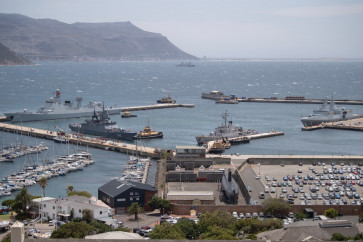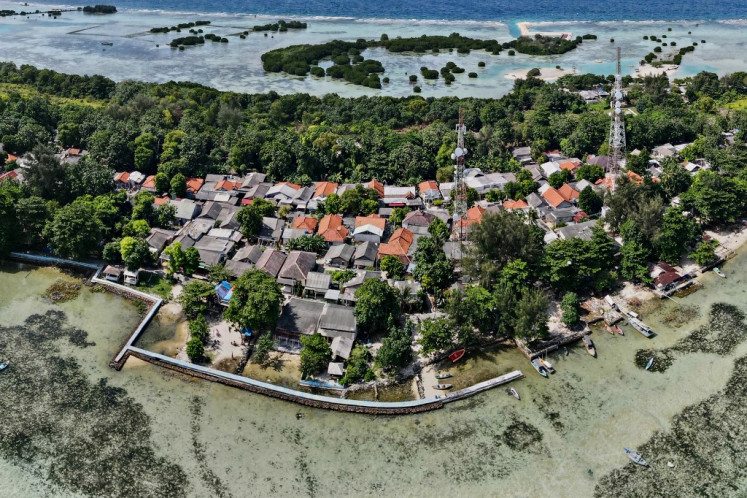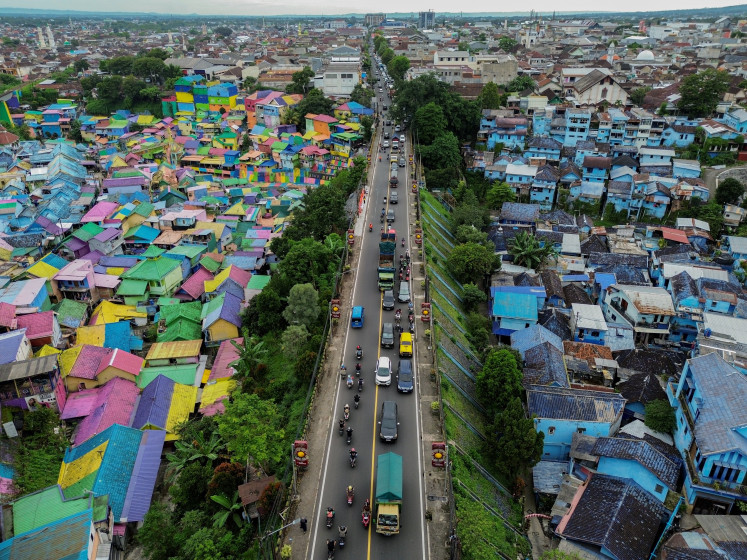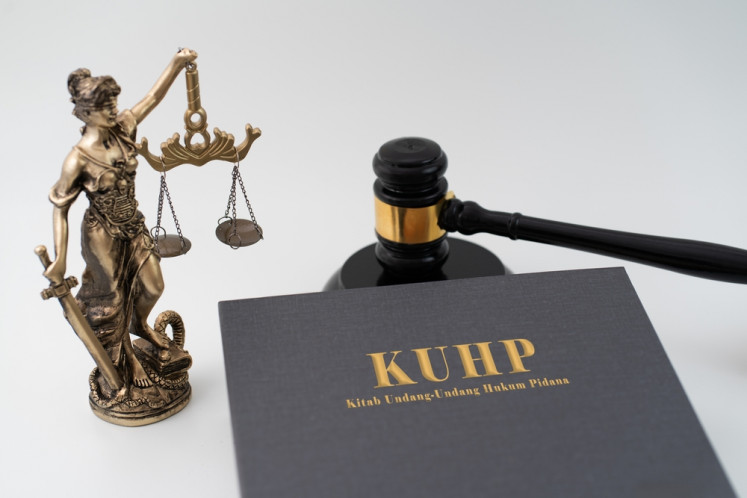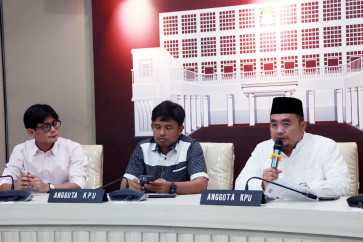Popular Reads
Top Results
Can't find what you're looking for?
View all search resultsPopular Reads
Top Results
Can't find what you're looking for?
View all search resultsEthics council leaves electoral fraud questions unanswered
The DKPP's failure to follow its corruption probe to the highest level of the KPU undermines Indonesia's democracy as well as the entire election process.
Change text size
Gift Premium Articles
to Anyone
 Members of the General Elections Commission (from left) Agus Mellaz, Idham Holik and Mochammad Afifuddin hold a press conference on March 24, 2023 in Jakarta to address the commission’s appeal against the Central Jakarta District Court’s decision, which favored the Prima Party’s request to postpone the 2024 general election. (Antara/Reno Esnir)
Members of the General Elections Commission (from left) Agus Mellaz, Idham Holik and Mochammad Afifuddin hold a press conference on March 24, 2023 in Jakarta to address the commission’s appeal against the Central Jakarta District Court’s decision, which favored the Prima Party’s request to postpone the 2024 general election. (Antara/Reno Esnir)

On April 3, the Election Organization Ethics Council (DKPP) rendered a decision on allegations of fraud within the General Elections Commission (KPU), concerning interference and intimidation in the factual verification process of political parties in North Sulawesi.
After a lengthy wait, the DKPP’s decision leaves core problems unresolved, and the council has failed to expose the root of the fraud. With fairly minimal sanctions placed on the accused officials of the regional elections commissions (KPUDs) involved, the most serious punishment was that of Jelly Kantu, who was dismissed from his position as technical and public participation head at the Sangihe Islands KPUD.
The DKPP stated that it did not uncover any acts of intimidation and the KPU leadership, including Idham Holik, who was named among the defendants, have been exonerated.
While the DKPP’s investigation was welcome, this conclusion seems sadly insufficient. Unchecked corruption reduces the credibility of the verification process, the KPU and the legitimacy of the elections. The council’s reluctance to conduct a deeper investigation into the instigators is especially worrying at a time when the Feb. 14, 2024 elections have come under increasing challenges.
The events concerned occurred between October and December of last year, so it may be worth reprising the details of this case briefly. Essentially, whistleblowers in the KPU alerted investigators that certain political parties, including Gelora, Garuda, the Nusantara Awakening Party and the Labor Party, had been allowed to register, despite these parties failing to meet the stipulated level of support for inclusion on the ballot.
The accusations alleged data manipulation in the factual verification process and intimidation of KPUD officials by the KPU leadership, with elections in 12 regencies or cities and seven provinces affected. The DKPP held evidentiary sessions that were closed to the public.

This investigation may seem minor. Parties were permitted to participate in the 2024 election despite failing to demonstrate sufficient support to meet the requirements. Troubling, perhaps, but hardly a gross threat to democracy, given that allowing an unpopular party to participate in an election is, by definition, unlikely to massively sway the results.


